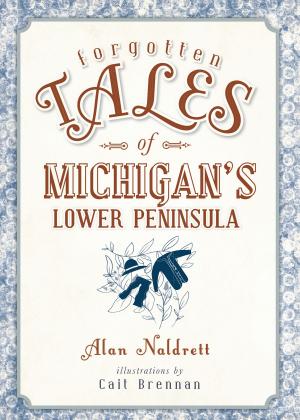| Author: | Buddy Sullivan | ISBN: | 9781439627693 |
| Publisher: | Arcadia Publishing Inc. | Publication: | August 9, 2000 |
| Imprint: | Arcadia Publishing | Language: | English |
| Author: | Buddy Sullivan |
| ISBN: | 9781439627693 |
| Publisher: | Arcadia Publishing Inc. |
| Publication: | August 9, 2000 |
| Imprint: | Arcadia Publishing |
| Language: | English |
The barrier islands of the south Atlantic coastline have for years held a deep attraction for all who have come into contact with them. Few, however, can compare with the mystique of Sapelo Island, Georgia. This unique semitropical paradise evokes a time long forgotten, when antebellum cotton plantations dominated her landscape, all worked by hundreds of black slaves, the descendants of whom have lived in quiet solitude on the island for generations. For more than 50 years of the twentieth century, two millionaires held sway on Sapelo, and it is their story, interwoven with that of the island�s residents, that unfolds within the pages of this book. Almost 200 photographs provide testimony to the dynamic forces and energies implanted upon Sapelo by two men, Howard E. Coffin, a Detroit automotive pioneer, and Richard J. Reynolds Jr., heir to a huge North Carolina tobacco fortune. Beginning with a photographic essay about Sapelo�s antebellum plantation owner, Thomas Spalding, Sapelo Island moves into the primary focus of the story, the years from 1912 to 1964, an era of grandeur that has left a rich photographic legacy.
The barrier islands of the south Atlantic coastline have for years held a deep attraction for all who have come into contact with them. Few, however, can compare with the mystique of Sapelo Island, Georgia. This unique semitropical paradise evokes a time long forgotten, when antebellum cotton plantations dominated her landscape, all worked by hundreds of black slaves, the descendants of whom have lived in quiet solitude on the island for generations. For more than 50 years of the twentieth century, two millionaires held sway on Sapelo, and it is their story, interwoven with that of the island�s residents, that unfolds within the pages of this book. Almost 200 photographs provide testimony to the dynamic forces and energies implanted upon Sapelo by two men, Howard E. Coffin, a Detroit automotive pioneer, and Richard J. Reynolds Jr., heir to a huge North Carolina tobacco fortune. Beginning with a photographic essay about Sapelo�s antebellum plantation owner, Thomas Spalding, Sapelo Island moves into the primary focus of the story, the years from 1912 to 1964, an era of grandeur that has left a rich photographic legacy.















